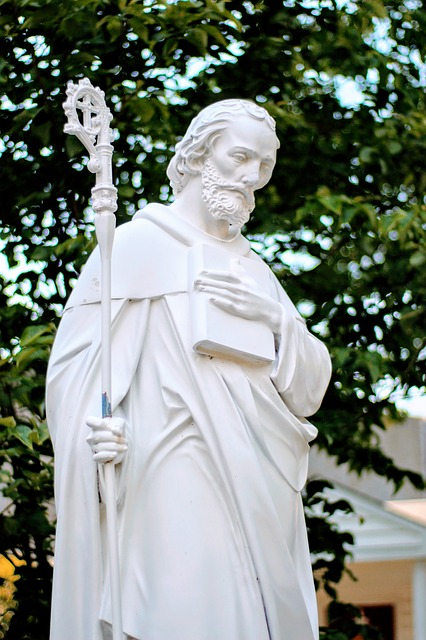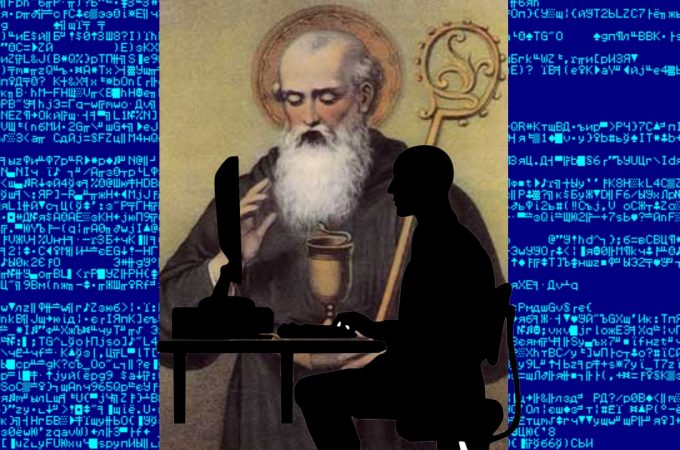Saint Benedict lived in the 6th century but is making waves in the 21st! More about that below from our friends at BreakPoint.
 What you are about to read may be the most unlikely corporate story you’ve never heard about. And it’s a hand-in-glove fit with much of the Disciple Nations Alliance message.
What you are about to read may be the most unlikely corporate story you’ve never heard about. And it’s a hand-in-glove fit with much of the Disciple Nations Alliance message.
For example, a decade ago, Darrow published LifeWork: A Biblical Theology for What You Do Every Day in which he argues that God cares about how we spend 50 to 75 percent of our waking hours. Your work, like that of Saint Benedict, is a kingdom calling … yes, even if you are a plumber, a lab technician or a programmer.
The DNA feels so strongly about this issue we created an online Coram Deo course on the topic. Go here to find out more about that.
So we are happy to point our readers to a post about Saint Benedict from BreakPoint. You could call it Sixth Century Monk Shapes 21st Century Programmers.
We have excerpted it here but we encourage you to go to BreakPoint and the entire post by Eric Metaxas.
~
 You’ve probably heard something about the Rule of Saint Benedict, a famous work written in the sixth century by Benedict of Nursia, the founder of Western monasticism. For fifteen hundred years The Rule has guided monks in their shared religious life by encouraging prayer, obedience, and manual labor. It also served as a foundation for the idea of a written constitution and the rule of law across medieval Europe.
You’ve probably heard something about the Rule of Saint Benedict, a famous work written in the sixth century by Benedict of Nursia, the founder of Western monasticism. For fifteen hundred years The Rule has guided monks in their shared religious life by encouraging prayer, obedience, and manual labor. It also served as a foundation for the idea of a written constitution and the rule of law across medieval Europe.
Which brings us to today. D. Richard Hipp is the founder of a public domain database management engine called SQLite that’s used in major browsers, smart phones, Adobe, and Skype. Hipp is asking a question almost never heard in the high-tech world: What would Benedict do? Hipp, a professing Christian, has put forward a new set of community standards for SQLite programmers based on the Rule of Saint Benedict.
The Rule, and now the community standards of SQLite, include the following duties: “First of all, love the Lord God with your whole heart, your whole soul, and your whole strength. Then, love your neighbor as yourself. Do not murder. Do not commit adultery. Do not steal.”
…
Of course, the code of conduct is a suggestion, not a mandate. It’s an invitation to true wisdom. “No one is required to follow The Rule, to know The Rule, or even to think that The Rule is a good idea,” the company maintains. “The Founder of SQLite believes that anyone who follows The Rule will live a happier and more productive life, but individuals are free to dispute or ignore that advice if they wish.”
 And, not surprisingly for Silicon Valley, there are more than a few users who do dispute the Rule of Saint Benedict’s applicability to a popular software application. “I am quite baffled by this,” said one commenter. “I mean this is some strange place to promote Christianity.” Another said, “Religious discrimination isn’t ok, and being annoyed by it isn’t blowing things out of proportion.”
And, not surprisingly for Silicon Valley, there are more than a few users who do dispute the Rule of Saint Benedict’s applicability to a popular software application. “I am quite baffled by this,” said one commenter. “I mean this is some strange place to promote Christianity.” Another said, “Religious discrimination isn’t ok, and being annoyed by it isn’t blowing things out of proportion.”
…
It’s amazing, isn’t it, how empowering God’s rules can be for all of life, and not just for what is so often called the religious part.
While we may not be in the position of a Richard Hipp in the high-flying software industry, surely we can use our influence in whatever corner of the world God has placed us to show our neighbors His love for them and His desire that they flourish in Him.
- – Eric Metaxas






